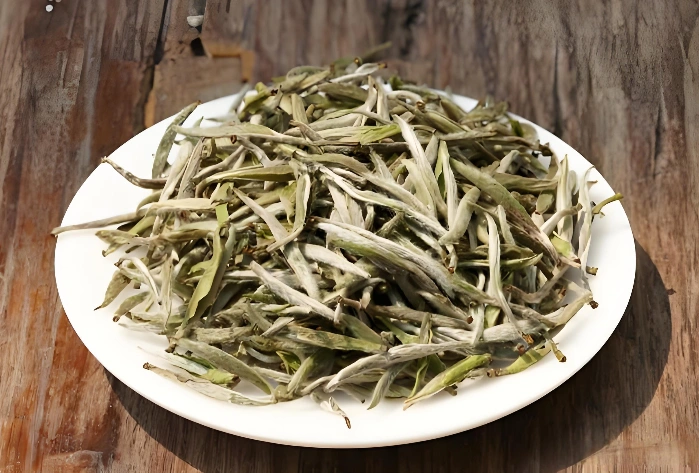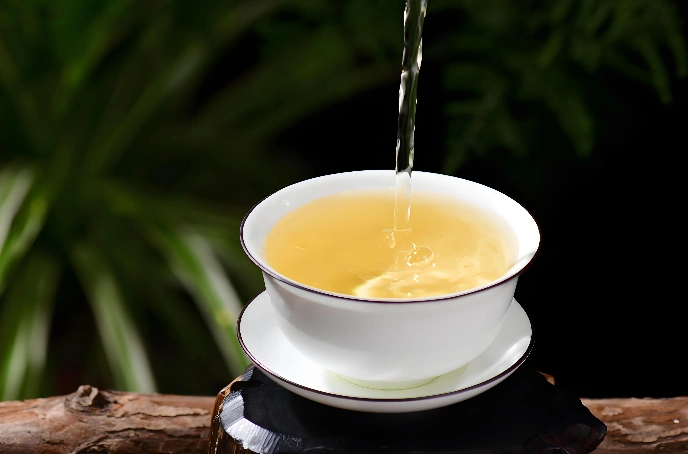White tea health benefits begin the moment you cradle that pale-golden cup—its gentle floral aroma unfurling calm as its potent bioactives set to work beneath the surface. This delicate leaf, harvested before full oxidation, brims with antioxidants and nurturing compounds that support everything from radiant skin to steady blood sugar.
Imagine a daily ritual that soothes your senses, uplifts your mood, and fortifies your body against life’s stressors. In this guide, you’ll discover how white tea can transform your health—whether you’re seeking white tea antioxidants, exploring white tea in detox programs, bolstering white tea for immune support, protecting your liver, or even supplementing white tea for diabetes management.

What Is White Tea?
White tea hails from the tender, silvery buds and youngest leaves of Camellia sinensis, plucked in early spring. Unlike green or black teas, it undergoes only withering and gentle air-drying, preserving its natural spectrum of catechins, polyphenols, amino acids, vitamins, and trace minerals. This minimal processing gives white tea its signature subtle sweetness, silky mouthfeel, and whisper of floral fragrance—qualities that make each sip feel like a moment of pure indulgence.
Key Nutrients & Bioactives
- Catechins & Polyphenols
- The spotlight falls on epigallocatechin-3-gallate (EGCG), a catechin renowned for its powerful antioxidant action.¹
- Other catechins (EC, ECG, EGC) and polyphenols work in synergy to neutralize free radicals, inhibit pro-inflammatory pathways, and support cellular repair.
- Vitamins C & E & Amino Acids
- Vitamins C and E act as co-antioxidants, regenerating other protective compounds and encouraging collagen synthesis for vibrant, youthful skin.
- L-theanine, an amino acid unique to tea, promotes calm focus and counters stress-related cortisol spikes.
- Trace Minerals
- Zinc, manganese, and selenium in white tea contribute to immune function, antioxidant enzyme activity, and metabolic balance.

Comprehensive Health Benefits
1. Antioxidant Defense
At its core, white tea health benefits arise from its antioxidant arsenal. EGCG and companion polyphenols scavenge reactive oxygen species (ROS), preventing damage to DNA, proteins, and cell membranes. A 2018 review highlights how these compounds modulate oxidative stress and inflammation at the molecular level, reinforcing your body’s natural defenses.²
2. Detox Support
Incorporating white tea in detox programs can amplify cleansing. Its mild diuretic effect aids the elimination of toxins, while polyphenols support liver enzymes involved in phase II detoxification. Together, they help flush metabolic byproducts and environmental pollutants, leaving your system refreshed.
3. Immune System Boost
A resilient immune system depends on balanced oxidative status. White tea polyphenols enhance natural killer cell activity and fine-tune cytokine responses—key steps in recognizing and neutralizing pathogens. Regular sips of white tea for immune support can help you weather cold seasons and busy schedules with grace.
4. Metabolic & Diabetes Support
For those mindful of blood sugar, white tea health benefits extend to metabolic regulation. EGCG improves insulin sensitivity and inhibits carbohydrate-digesting enzymes, smoothing post-meal glucose surges. Clinical research suggests habitual white tea consumption may reduce the risk of type 2 diabetes by up to 20%.³
5. Liver Health
Your liver is your body’s chief detox organ. White tea’s antioxidants not only shield hepatic cells from oxidative insult but also promote healthy lipid metabolism. In animal studies, catechin-rich tea extracts protected against fatty liver development and improved liver enzyme profiles—foundations for lasting vitality.⁴
Mechanisms of Action
- Free Radical Neutralization: Polyphenols donate electrons to stabilize ROS, halting cellular damage.
- Enzyme Modulation: Inhibition of cyclooxygenase (COX) and lipoxygenase pathways reduces inflammation; activation of glutathione-S-transferase enhances detoxification capacity.
- Metabolic Enhancement: EGCG stimulates AMP-activated protein kinase (AMPK), a cellular energy sensor, promoting fat oxidation and glucose uptake.
Optimal Consumption & Preparation
- Water Temperature: Heat to 75–85 °C (167–185 °F) to preserve delicate antioxidants and avoid bitterness.
- Steeping Time: 3–5 minutes; stir gently at midpoint to coax out full flavor and nutrients.
- Daily Serving: 3–5 cups, spaced from morning through afternoon, maintain a steady flow of bioactives.
- Cold vs. Hot Brew: Cold-brewed white tea (8–12 hr steep) yields a softer profile, ideal for detox blends; hot infusions deliver immediate soothing warmth.

Incorporating into Daily Routine
- Morning Ritual: Begin with a warm cup of white tea—inhale its floral perfume as you set positive intentions.
- Midday Pause: Swap one coffee for white tea to curb oxidative stress and sustain calm focus.
- Pre-Workout Sip: Enjoy a cup 30 minutes before exercise to harness EGCG’s metabolism-boosting synergy.
- Detox Water: Add cooled white tea to infused water with cucumber and mint—an easy detox companion.
- Tea-Inspired Recipes: Stir cooled white tea into chia puddings, smoothies, or light vinaigrettes for a subtle antioxidant lift.
Safety & Precautions
- Caffeine Sensitivity: Though lower in caffeine than green tea, white tea still contains 15–30 mg per cup. Limit intake in the late afternoon if you’re prone to restlessness.
- Medication Interactions: High catechin intake may influence certain medications (e.g., blood thinners). Always consult your healthcare provider before making significant dietary changes.
- Pregnancy & Nursing: Moderate consumption is generally safe, but check with your doctor if you have concerns.
Frequently Asked Questions
Q: How does white tea differ from green tea?
A: White tea’s minimal processing preserves higher levels of delicate polyphenols and amino acids, resulting in a gentler flavor and unique health profile.
Q: When will I notice benefits?
Sensory relaxation and improved focus can be immediate. Skin radiance, digestion, and metabolic effects typically emerge with consistent use over 4–8 weeks.
Q: Can children enjoy white tea?
Due to its caffeine content, it’s best reserved for adolescents and adults. Herbal alternatives may suit younger individuals.

Conclusion
Embracing white tea health benefits means weaving a ritual of sensory delight and holistic nourishment into your everyday life. From fortifying antioxidant defenses to supporting detox pathways, immune resilience, metabolic balance, and liver vitality, each pale-golden cup celebrates nature’s purest gifts. Sip mindfully, savor the moment—and let white tea’s gentle power guide you toward lasting wellness.



